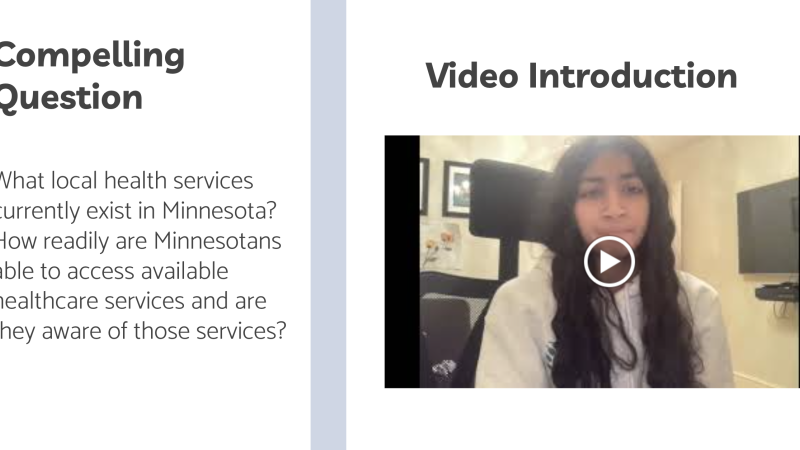20 Questions That Promote Inquiry-Based Learning
In today's world, where information is abundant and artificial intelligence tools are readily accessible, it's crucial for learners to develop the skills of asking good questions, writing effective prompts while conducting research, and critically evaluating information. Inquiry-based learning, an approach that encourages learners to pose questions and conduct research, has become increasingly important in fostering these essential 21st-century skills.
Inquiry-based learning encourages students to make connections across different subject areas and explore real-world problems from multiple perspectives, fostering interdisciplinary thinking. For example, a project on sustainable energy in GOA’s Global Capstone could involve research in science, economics, and social studies, allowing students to see the interconnectedness of different disciplines. Consider the following examples from this year’s Global Capstone projects.
Rhea from Blake School, in the course Medical Problem Solving I, investigated healthcare access and social disparities in Minnesota through a social media campaign, art installations, and community workshops.
Yassin from the American School of Dubai, in the course Investing I, conducted an inquiry into the use of different AI tools for investment strategies. Yassin's research combined hands-on experimentation with AI technologies and secondary analysis of their applications in financial markets.
Mizuho from The American School in Japan, in the course International Relations, examined how education shapes societal norms in Japan. Mizuho explored cultural values like cleanliness and collectivism while analyzing efforts to foster independent thinking and flexibility within the education system.
“What local health services currently exist in Minnesota? How readily are Minnesotans able to access available healthcare services and are they aware of those services?”
Rhea — Blake School
“How can AI streamline stock selection by analyzing market trends and predicting future performance with greater accuracy?”
Yassin — American School of Dubai
“How does education in Japan impact the cultures and the norms of the Japanese society?”
Mizuho — The American School in Japan
Designing learning experiences that foster thinking means being intentional about the prompts and questions we ask our students. A bank of clarifying and probing questions can help promote inquiry-driven participant work and encourage deeper thinking. You can use these questions during the process of giving feedback to students, in your regular check-ins with students, and to prompt students to go deeper in their work. You could also post these questions and encourage students to use them with one another.
Using Clarifying and Probing Questions to Foster Inquiry

Clarifying Questions:
"Did I hear you say…?"
"Can you give me an example…?"
"Tell me what you mean when you said…"
"Can you explain more about that?"
"Tell me more about…"
"What criteria did you use…?"
"What resources did you collect…?"
Probing Questions:
"What is the connection between x and y?"
"What if the opposite were true?"
"What would you have to change in order for…?"
"How do you feel when…?"
"What might this tell you about…?"
"If you were x, how would you see this situation?"
"What's another way you might…?"
"What sort of impact do you think that would have on…?"
"How did you decide/come to that conclusion?"
"How might your assumptions about…influenced your thinking?"
"And…what else?"
"What are we missing?"
"What will you do first? Next?"
The National School Reform Faculty's 5 Whys Protocol is another excellent tool for promoting inquiry, challenging ideas, and distilling new meaning.
By embracing inquiry-based learning, educators can equip students with the essential skills needed to navigate the information age, promote student agency and self-directed learning, and foster deeper conceptual understanding across disciplines.
As Daniel Willingham, author and cognitive scientist, writes, "Cognitive science has shown that what ends up in a learner's memory is not simply the material presented—it is the product of what the learner thought about when he or she encountered the material." By designing learning experiences that foster inquiry and encourage students to think critically, we can cultivate lifelong learners who are prepared to tackle complex challenges and contribute meaningfully to our ever-changing world.
For more, see:
GOA is a nonprofit learning organization that reimagines learning to empower students and educators worldwide. In partnership with our global network of 150 schools, we provide interactive, relationship-driven courses, expert resources, and innovative thinking that help to expand and elevate academic programs. Together, we help students and educators become open to the extraordinary.
Follow us on LinkedIn for the latest learning opportunities and news. Sign up for GOA Insights, our newsletter focused on innovative ideas and best practices for the future of learning. Become a Member School.



